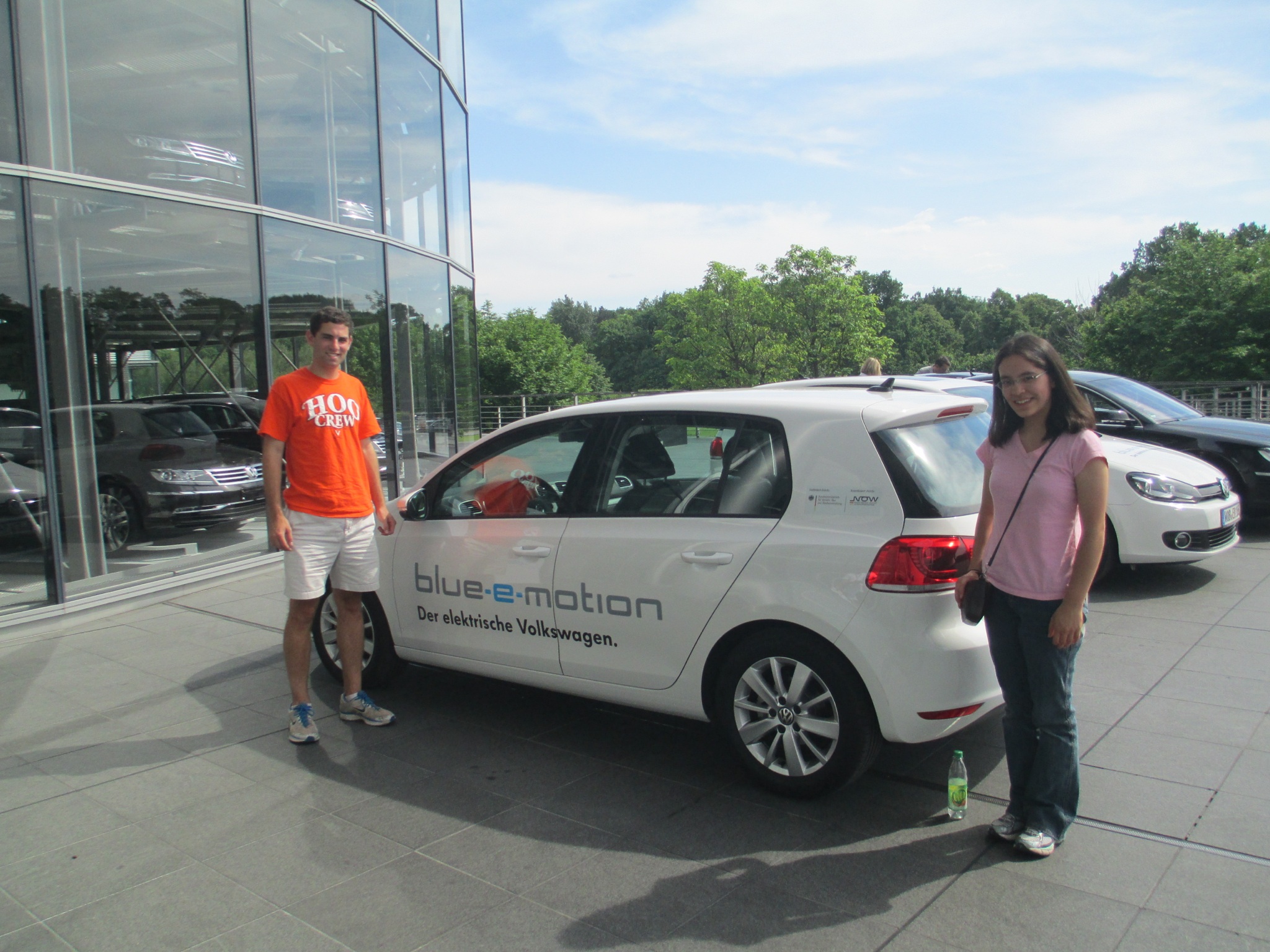When the 18 University of Virginia engineering students in this summer’s Rodman Scholars Global Ingenuity Program sat down in a German meeting room with counterparts from Braunschweig Technical University, they realized they had a problem.
Charged by Volkswagen officials with designing a car that would merge ideals of sustainability with luxury, they realized that their first challenge was to bridge an even more substantial gap – the cultural divide between Germans and Americans.
“The American students wanted to begin by gaining a better understanding of the psychology and history of luxury and to see how manufacturers in other industries made sustainability an element of luxury,” said Dasha Tyshlek, a second-year student in U.Va.’s engineering and society department. “The German students, on the other hand, wanted to jump right in and explore the technology.”
The difference in perspective wasn’t a surprise to the Americans; they had talked about cultural differences many times during the meetings that led up to their trip. They were unprepared, however, for how stark the differences actually were.
“It came as a bit of a shock,” said Alexander McGlothlin, a third-year student in systems and information engineering. “Their approach was definitely applied, while ours was more open-ended.”
The German and American students not only came to consensus about methods, but also learned to manage the project across cultures, giving a successful presentation to Volkswagen officials 10 days later.
That initial discussion with the German students was exactly the type of experience the Global Ingenuity Program was designed to promote, said Dana Elzey, associate professor of materials science and engineering and director of the Rodman Scholars program in the School of Engineering and Applied Science. “Our students have superb analytical skills, so it’s particularly critical that they appreciate that applying knowledge of math and science is just one aspect of successful engineering,” he said. “It’s only by confronting differences that you learn just how culturally mediated engineering really is.”
Students also gained firsthand exposure to how a high-quality, high-performing corporation operates. Rodman Scholars toured a variety of Volkswagen facilities, from its state-of-the-art factory in Wolfsburg, one of the largest in the world, to the Transparent Factory in Dresden, where it produces the Phaeton, a luxury car not sold in the United States. “Volkswagen is an excellent model,” Elzey said. “The company works very hard to mesh its global aspirations with a commitment to social responsibility. Just the fact that Volkswagen sponsors programs like Global Ingenuity speaks to their forward-thinking way of operating.”
In the course of the project, the Rodman Scholars also learned to adjust to the sometimes-conflicting priorities to be found in large corporations. Representatives from Volkswagen itself; one of Volkswagen’s luxury brands, Bugatti; and Volkswagen’s intelligent car group all made presentations to the student teams, and each had a slightly different view of the group’s goals.
“It’s important for students to see that there is a competition for ideas within companies,” Elzey said. “One of their tasks was to find a way to satisfy these different constituencies.”
Most importantly, this intensive immersion gave students the opportunity to see their strengths and weaknesses in sharp relief. Tyshlek, for instance, found that she liked operating on the interface of engineering and other disciplines like philosophy and psychology and that she has an aptitude for synthesizing ideas.
All the students were required to keep journals, which gave them the chance to think about their experiences. “Having the opportunity to reflect was incredibly valuable,” McGlothlin said. “You learn about yourself while learning about real-world engineering.”
Media Contact
Article Information
September 30, 2012
/content/uva-german-students-bridge-cultural-divide-meet-engineering-challenge-0

